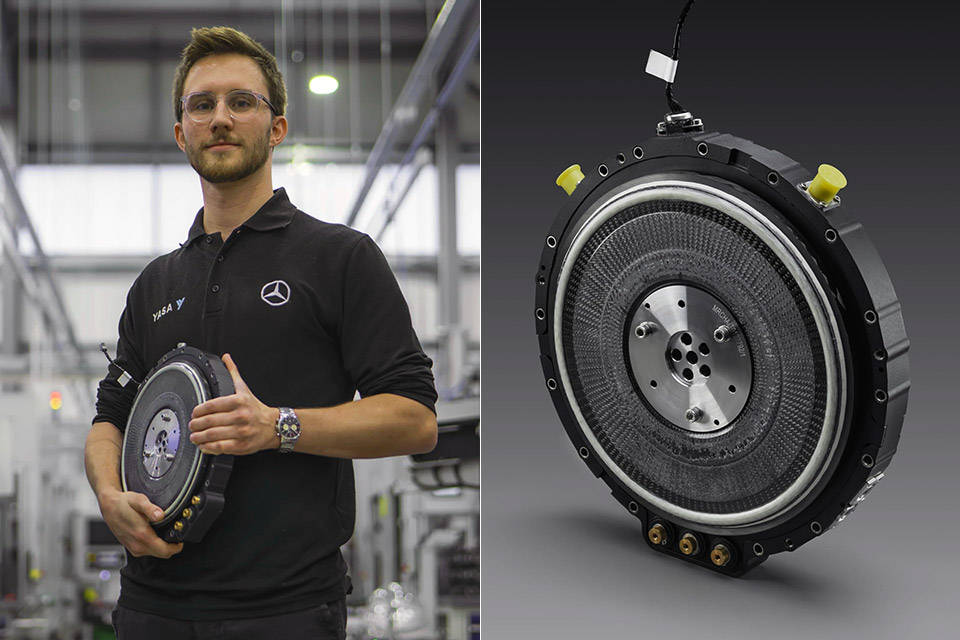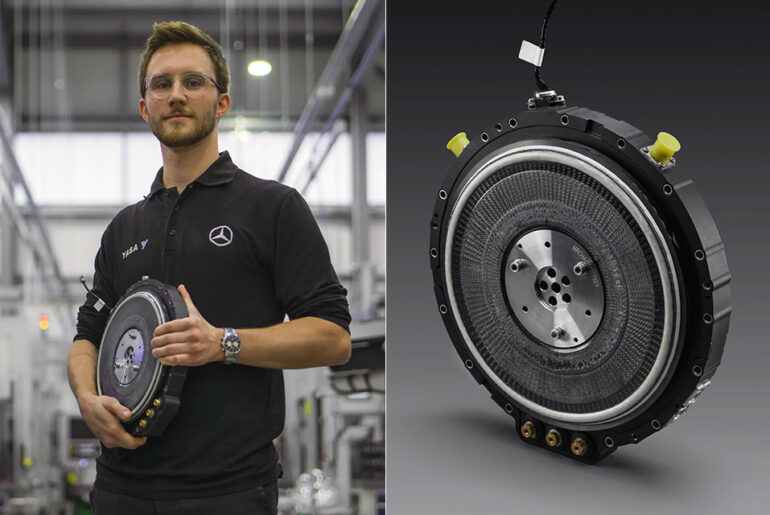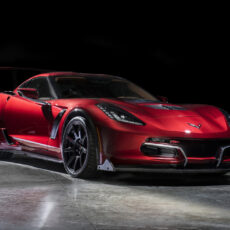
YASA, a small company in Oxford, England, has turned electric car performance on its head. Their latest prototype, an axial flux motor, produces 750kW – over 1,000hp – from a 12.7kg package. That’s 59kW/kg, the highest power density of any electric motor. To put that in perspective, it’s like packing a fighter jet engine in a carry-on bag.
Three months ago, YASA set the bar with a 550kW motor weighing 13.1kg, 42kW/kg, twice the power density of the next best competitor. Now they’ve lost some weight and gained 36% more power. This isn’t a scribbled idea on a napkin, it’s a real working prototype spinning on dynamometers in YASA labs. The numbers are impressive but the implications are huge.
- MERCEDES-AMG PETRONAS F1 TEAM BUILDING SET – LEGO Speed Champions Mercedes-AMG PETRONAS F1 Team Race Car vehicle building set for boys and girls...
- DRIVER MINIFIGURE – This car playset includes a driver minifigure wearing a Mercedes-AMG PETRONAS F1 Team outfit and a winged helmet for kids to...
- AUTHENTIC DETAILS – The F1 race car features design details from the real-life 2024 version, including sponsor stickers and wider rear tires...
Axial flux motors aren’t new, but YASA’s technique is. Traditional radial flux motors stack their magnetic fields like a barrel, axial flux motors arrange them in a disc-like arrangement. This allows for a thinner, lighter motor while still packing a punch. YASA’s latest design refines this concept with precision engineering and superior thermal management, extracting every last bit of performance from materials that don’t need rare earth metals or exotic alloys. It’s a practical step forward, not a lab experiment.
This motor’s continuous power output is believed to be between 350-400kW – 469-536hp. That’s not just a burst for the drag strip, it’s sustained power to propel a supercar around a corner or transport a large vehicle efficiently. Most motors can’t even get half that in peak power, let alone sustain it. YASA’s invention is a game changer for high performance vehicles, every kg saved means faster lap times and more efficiency.
Since 2021, YASA has been part of Mercedes-Benz, a company that turns technology into road cars. The clue is obvious: high performance cars. Super cars that outperform petrol powered cars and are quiet and emission free. But YASA’s motor isn’t a one trick pony. Its scalable architecture means it could power more than just million dollar hypercars, electric SUVs and delivery vans that need power and efficiency.

Others in the sector, such as Evolito and Helix, have made improvements in power density but are still playing catch-up. The D250 motor from Evolito produces 28kW/kg, whereas the SPX177 motor from Helix is built for hypercars and produces 25.4kW/kg. Both are amazing, but YASA stands out. Even Donut Labs, H3X, and Equipmake motors with 13-15.8kW/kg feel archaic. YASA is not only leading, but also altering the rules.
Is there a catch? Do not expect to see this in showrooms anytime soon. YASA hasn’t said when this will go into production, but for the time being, they’re focusing on the high-end car sector. However, the lack of exotic materials and the motor’s scalable architecture suggest it’s built for more than just concept cars. The Advanced Propulsion Centre in the UK, which funded the experiment, sees this as a step toward more mainstream applications.
[Source]










